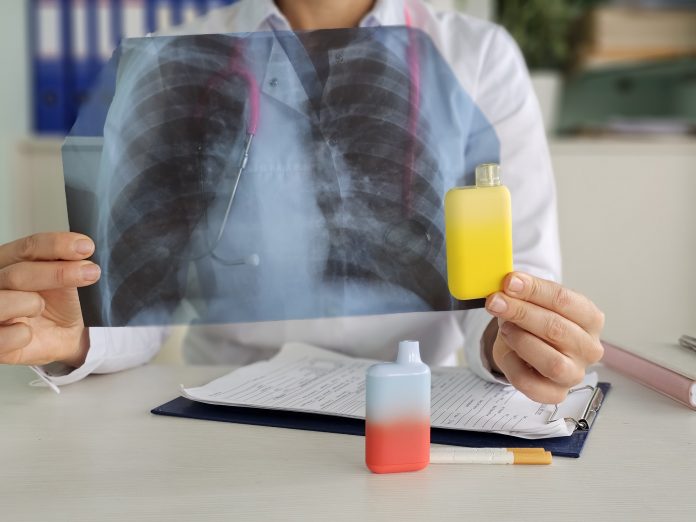The University of Birmingham leads £1.55m research to assess the long-term effects of vaping on respiratory cells, immunity, and lung microbiome in smokers
A groundbreaking study led by the University of Birmingham, backed by a £1.55 million grant from the Medical Research Council, is set to explore the long-term effects of vaping on lung health. The research will focus on how e-cigarette use influences airway immune cells, epithelial cells, and the lung microbiome over a year-long period. This study aims to provide critical data to inform public health decisions and individual choices regarding smoking cessation methods.
Tracking the impact of e-cigarettes on lung cells, immune function, and microbiome
The study will recruit over 200 participants from Birmingham for a research project examining the benefits and harms of vaping on long-term respiratory health. A total of 200 healthy smokers from the University Hospitals Birmingham (UHB) NHS Foundation Trust’s NHS staff smoking cessation clinic and community smoking cessation service will participate, along with a further cohort of 40 never-smokers and never-vapers.
Previous studies have considered the effects on lung health at a single time point; however, this study will examine the long-term effects of vaping on the respiratory system over a year.
The newly funded EVALUATE study has received £1.55 million from the MRC. It aims to address unanswered questions about the biological effects of vaping on lung cells, immune cells, and inflammatory markers, and the airway microbiome.
Dr Aaron Scott, Associate Professor in Respiratory Science at UHB and chief investigator of the EVALUATE study, said: “We will study how vaping affects critical airway immune cells and the epithelial cells which line the insides of the lung.
Since these cell types play a critical role in the development of smoking-related lung diseases, these changes will provide clear insight into vaping on lung health.”
Previous work from Dr Scott’s lab at the University of Birmingham has shown that toxicants within e-cigarette vapour, formed by the breakdown of e-liquid, can negatively impact critical immune cells, independent of the effects of nicotine.
Dr Mike Cox, Assistant Professor Respiratory Microbiome at the University of Birmingham, said: “Supported by the NIHR Birmingham Biological Resource Centre, the multi-faceted study will also investigate how vaping changes the human microbiome after smoking cessation.
Trillions of microorganisms inhabit and interact within the human body, maintaining a delicate balance. Smoking can drastically alter this balance and can impact health if disrupted.
This project will allow us to uncover how vaping impacts the airway microbiome and map out how this changes over time.”
Professor Luis Mur at Aberystwyth University will lead the investigation into the accumulation of toxicants within the airways after vaping. Professor Mur said, “Using our cutting-edge mass spectroscopy platforms, we can monitor how toxicants in the airways change as people move from smoking to vaping.
Combined with data on immune cell function, this interdisciplinary approach will give us a powerful insight into the true nature of e-cigarette exposure on the airways.”








